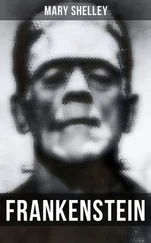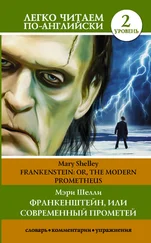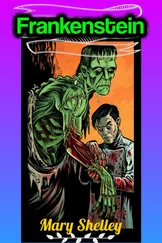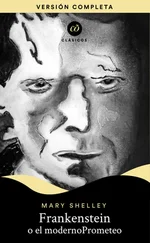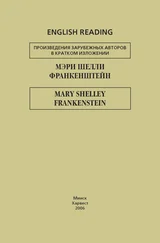Mary Shelley - The Fortunes of Perkin Warbeck
Здесь есть возможность читать онлайн «Mary Shelley - The Fortunes of Perkin Warbeck» — ознакомительный отрывок электронной книги совершенно бесплатно, а после прочтения отрывка купить полную версию. В некоторых случаях можно слушать аудио, скачать через торрент в формате fb2 и присутствует краткое содержание. Жанр: unrecognised, на английском языке. Описание произведения, (предисловие) а так же отзывы посетителей доступны на портале библиотеки ЛибКат.
- Название:The Fortunes of Perkin Warbeck
- Автор:
- Жанр:
- Год:неизвестен
- ISBN:нет данных
- Рейтинг книги:3 / 5. Голосов: 1
-
Избранное:Добавить в избранное
- Отзывы:
-
Ваша оценка:
- 60
- 1
- 2
- 3
- 4
- 5
The Fortunes of Perkin Warbeck: краткое содержание, описание и аннотация
Предлагаем к чтению аннотацию, описание, краткое содержание или предисловие (зависит от того, что написал сам автор книги «The Fortunes of Perkin Warbeck»). Если вы не нашли необходимую информацию о книге — напишите в комментариях, мы постараемся отыскать её.
The Fortunes of Perkin Warbeck — читать онлайн ознакомительный отрывок
Ниже представлен текст книги, разбитый по страницам. Система сохранения места последней прочитанной страницы, позволяет с удобством читать онлайн бесплатно книгу «The Fortunes of Perkin Warbeck», без необходимости каждый раз заново искать на чём Вы остановились. Поставьте закладку, и сможете в любой момент перейти на страницу, на которой закончили чтение.
Интервал:
Закладка:
The Cavalier tied his horse to a tree, and entered the chapel. A venerable priest was reading the matin service; one old woman composed his congregation, and she was diligently employed telling her beads. The bright rays of the newly risen sun streamed through the eastern window, casting the chequered shadow of its lattice work on the opposite wall. The chapel was small and rustic; but it was kept exquisitely clean: the sacred appurtenances of the altar also were richer than was usual, and each shrine was decked with clusters of flowers, chiefly composed of white roses. No high praise, indeed, was due to the rude picture of the Virgin of the Annunciation, or of the announcing Angel, a representation of whom formed the altar-piece; but in barbaric England, in those days, piety stood in place of taste, and that which represented. Our Lady received honour, however, unworthy it might be of the inspiress of Raphael or Correggio. The cavalier took his disornamented casque from his head, placed it on the ground, and knelt reverentially on the bare earth. He had lately escaped from battle and slaughter, and he surely thought that he had especial motive for thanks-giving; so that if his lips uttered a mere soldier's "Ave," still it had the merit of fervour and sincerity.
Had he been less occupied by his own feelings, he might have remarked the many glances the priest cast on him, who dishonoured his learning and piety by frequent mistakes of language, as his thoughts wandered from his breviary, to observe with deep attention his unexpected visitor. At length the service ended: the old dame rose from her knees, and satisfied her curiosity which she had excited by many a look askance, by a full and long gaze on the cavalier. His hewn armour, torn cloak, and, unseemly for the sacred spot, the dread stains on his garments and hands were all minutely scanned. Nor did his personal appearance escape remark. His stature was tall, his person well knit, shewing him to be a man of about thirty years of age. His features were finely moulded, his grey eyes full of fire, his step had the dignity of rank, and his look expressed chivalrous courage and frankness. The good woman had not been long engaged in surveying the stranger, when her pastor beckoned her to retire, and himself advanced, replying to the soldier's salute with a benedicite, and then hastily enquiring if he came from the field.
"Even so, Father," said the Cavalier; "I come from the field of the bloody harvest. Has any intelligence of it travelled hither so speedily? If so, I must have wandered from the right road, and am not so far on my journey as I hoped."
"I have only heard that a battle was expected," said the priest, "and your appearance tells me that it is over. The fortunes, nay, perhaps the life, of a dear friend are involved in its issue, and I fear that it is adverse—for you fly from pursuit, and methinks, though stained with dust and blood, that emblem on your breast is the White Rose."
The warrior looked on the old man, whose dignity and language were at variance with his lowly destination; he looked partly in wonder, and partly to assure himself of his questioner's sincerity. "You are weary, Sir Knight," added the Monk, whose experienced eyes had glanced to the golden spurs of his visitant; "come to my hermitage, there to partake of such refreshment as I can bestow. When your repast is ended, I will, by confidence on my part, merit yours."
This invitation was that of worldy courtesy, rather than the rustic welcome of a recluse monk. The Cavalier thanked him cordially, adding, that he must first provide food and water for his horse, and that afterwards he would gratefully accept his host's invitation. The old man entered with the spirit of a soldier into his guest's anxiety for his steed, and assisted in purveying to its wants, ingratiating himself meanwhile with its master, by discovering and praising scientifically its points of beauty. The poor animal shewed tokens of over fatigue, yet still he did not refuse his food, and the Cavalier marked with joy that his eye grew brighter and his knees firmer after feeding.
They then entered the cottage, and the soldier's eye was attracted from more sacred emblems by a sword which was suspended over a picture of the Virgin:—"You belong to our Chivalry!" he exclaimed, while his countenance lighted up with joyful recognition.
"Now I belong to the holy order whose badge I wear," the Monk replied, pointing to his Benedictine dress. "In former days I followed a brave leader to the field, and, in his service, incurred such guilt, as I now try to expiate by fasting and prayer."
The Monk's features were convulsed by agitation as he spoke, then crossing his arms on his breast, he was absorbed in thought for a few moments, after which he raised his head and resumed the calm and even serene look that characterized him. "Sir Knight," said he, motioning to the table now spread for the repast, "I have but poor fare to offer, but a soldier will not disdain its meagreness. My wine I may praise, as being the produce of a generous vintage; I have kept it sealed, to open it on occasions like the present, and rejoice that your strength will be recruited by it."
Bread, fruits, cheese, and a flagon of the wine, which merited the giver's eulogium, composed the fugitive's breakfast, whose fatigue required cordial and repose. As he was occupied by his repast, his host eyed him with evident agitation, eager yet fearful to question him on the subject of the battle. At length he again asked, "You come from the field on which the forces of the King and of the Earl of Richmond met?"
"I do."
"You fought for the White Rose, and you fly?"
"I fought for the White Rose till it was struck to the ground. The king has fallen with his chief nobility around him. Few Yorkists remain to mourn the success of the Lancastrians."
Deep grief clouded the old man's countenance, but accustomed to subdue his feelings, as one on whom, being stricken by an overwhelming misery, all subsequent disasters fall blunted, he continued with greater calmness: "Pardon me, noble gentleman, if I appear to ask an indiscreet question. You are of lordly bearing, and probably filled a place near the royal person. Did you hear, on the night before last, aught of the arrival of a stranger youth at the King's tent?"
Читать дальшеИнтервал:
Закладка:
Похожие книги на «The Fortunes of Perkin Warbeck»
Представляем Вашему вниманию похожие книги на «The Fortunes of Perkin Warbeck» списком для выбора. Мы отобрали схожую по названию и смыслу литературу в надежде предоставить читателям больше вариантов отыскать новые, интересные, ещё непрочитанные произведения.
Обсуждение, отзывы о книге «The Fortunes of Perkin Warbeck» и просто собственные мнения читателей. Оставьте ваши комментарии, напишите, что Вы думаете о произведении, его смысле или главных героях. Укажите что конкретно понравилось, а что нет, и почему Вы так считаете.



